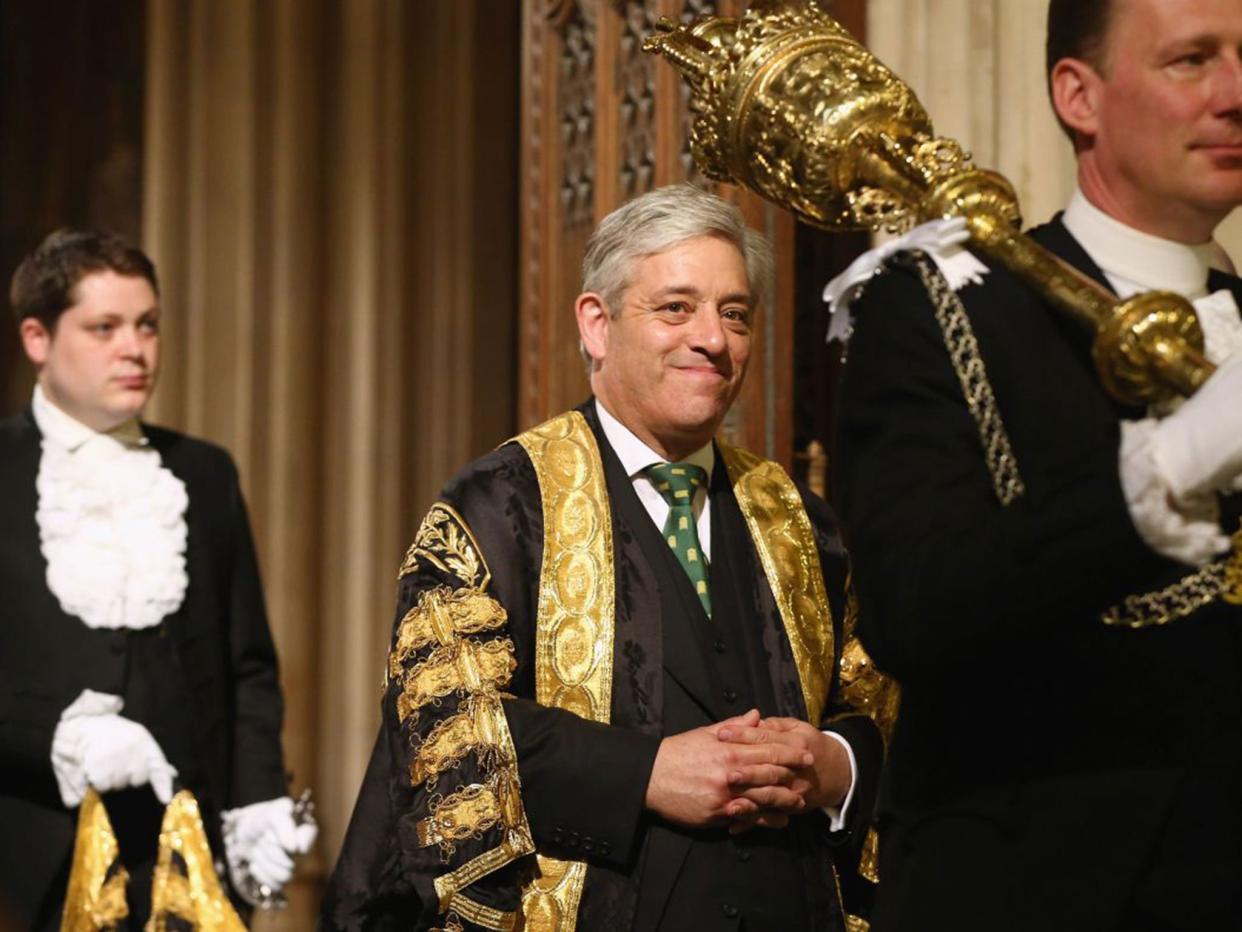How is the Speaker of the House of Commons elected, and who could replace John Bercow?

John Bercow, the Commons Speaker, has signalled he will step down next summer amid criticism from an independent inquiry over the failure of senior figures to deal with widespread allegations of bullying in the Palace of Westminster.
Mr Bercow, who has held the role since 2009, originally promised to leave after nine years in the chair but he has since made clear his intention to see out the Brexit process.
He has attracted his fair share of controversy since being elected and some of his Conservative colleagues are keen to force him out, although he retains support on the Labour benches.
What does the Speaker do?
The Speaker is the presiding officer for the House of Commons, making him or her the highest authority over MPs.
Famed for shouting, ‘order, order,’ the Speaker's main role is to chair debates in Commons, calling MPs to speak and ejecting rude or noisy politicians from the chamber.
Mr Bercow will often intervene if MPs are being too rambunctious, even during prime minister’s questions when he will tick off Tory MPs for shouting while Jeremy Corbyn speaks, or Labour members for drowning out Theresa May.
MPs will try to catch his eye when they want to speak by standing up and down, and Mr Bercow will prioritise MPs who have something useful to contribute. For example, he might call a politician with a large military base in their constituency to speak in a debate on defence cuts.
What are the other responsibilities?
The Speaker decides on which urgent questions are granted each day. UQs, as they are known, are an opportunity for MPs to summon a government minister to parliament to be questioned on an important topic. The Speaker also chooses which motions and amendments are selected.
As a politically neutral figure, the Speaker must sever ties with their party while in office. If there is an election, other parties traditionally do not field candidates in the Speaker's seat.
The Speaker cannot take part in parliamentary debates and can only vote in the event of a tie break.
The Speaker also represents the Commons to the Queen and chairs the House of Commons Commission, which is responsible for the administration and upkeep of parliament.
What perks come with the job?
The Speaker is one of the highest-ranking officials in the UK and he or she is appointed to the Privy Council on election. They are able to live at Speaker's House, a grace-and-favour residence in the Palace of Westminster, which includes a four-bedroom apartment.
The current Speaker, Mr Bercow, earns more than £150,000 as he is paid some £75,000 on top of his salary as MP for Buckingham.
How is the Speaker elected?
MPs elect the Speaker from a list of candidates, using a secret ballot system. If a candidate gets more than 50 per cent of the votes then they are elected to the post.
If no candidate gets more than half of the vote, then those with the fewest votes are eliminated and MPs vote again on a reduced slate.
If there is only one candidate, then they are elected without a vote.
The election is presided over by the Father of the House, the MP with the longest uninterrupted service. Former chancellor Ken Clarke is the current Father of the House.
Who could be the next Speaker?
Mr Bercow’s deputy, Labour MP Sir Lindsay Hoyle is regarded as one of the front-runners for the role. He has plenty of experience in the Speaker’s chair, after being elected as Chairman of Ways and Means in 2010 - the official title of the deputy speaker.
His other deputies, Eleanor Laing, a Conservative MP, and Labour MP Rosie Winterton could also be in with a chance.
Labour veteran Harriet Harman has made it known that she could be interested in the role, while respected Procedure Committee chairman Charles Walker is mentioned as a possible successor.

 Yahoo News
Yahoo News 
